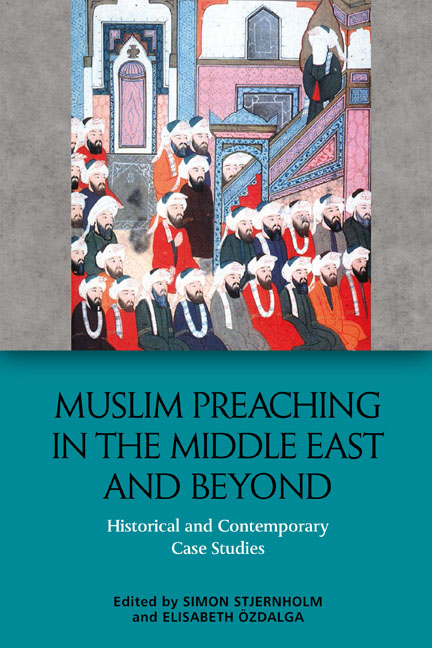4 - Preaching and the Problem of Religious Authority in Medieval Islam
Published online by Cambridge University Press: 20 October 2020
Summary
Preaching was central to the Muslim tradition and the Muslim experience from the very beginning. Muhammad is frequently depicted in the sources as preaching to his community – as, for example, in the famous ‘Farewell Sermon’, delivered shortly before his death, in which the Prophet is said to have communicated his final instructions to his followers. Muhammad did not, however, pioneer an entirely new genre of discourse. On the contrary, he and his contemporaries could draw on a long tradition of oratory and homiletics among the pre-Islamic Arabs (Serjeant 1983: 117–22).
Preaching became an important part of most Muslims’ experience of their faith and has remained so down to the present day. There are several reasons why this was the case. In the first place, Islam – like Christianity and especially Judaism – is an explicitly normative faith. Those who live in, or come from, the monotheistic traditions which emerged from the late antique Near East may take this for granted, but in fact not all religions are so keen on shaping the behaviour of their adherents. Judaism, as it emerged in the centuries before Christ, was constructed around a central paradigm: that God expects us to do (or not to do) certain things; and if we follow his will, we will be rewarded, and if we do not, we should expect punishment of some sort, either in this life or in the world to come. Christianity and then Islam followed the same paradigmatic structure. Islam especially became a religion of laws, expressed ultimately in the comprehensive shariʿa. But the impulse to shape the behaviour of its adherents is already deeply embedded in the Qurʾan, with its repeated injunction to ‘command what is good and forbid what is evil’. Islam is a normative faith, and so from the beginning a degree of exhortation, in which some Muslims would encourage other Muslims to behave in a certain way, was a part of the mix.
Islam is also a textual religion. This point should need no elaboration: without the Qurʾan, without the hadith, there would be no Islam. It is significant that the closest thing to a clergy in the Muslim tradition is the ʿulamaʾ, ‘those who know’ – that is, specialists on the texts on which the religion rests. But one consequence of the tradition's textual basis was to reinforce the role of ‘preaching’ in Islam.
- Type
- Chapter
- Information
- Muslim Preaching in the Middle East and BeyondHistorical and Contemporary Case Studies, pp. 67 - 82Publisher: Edinburgh University PressPrint publication year: 2020



